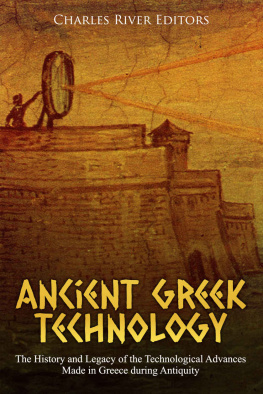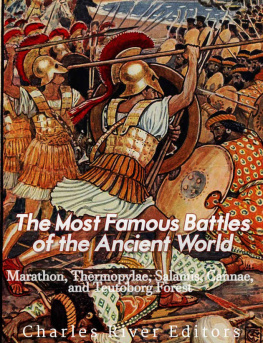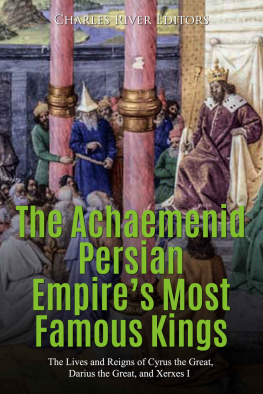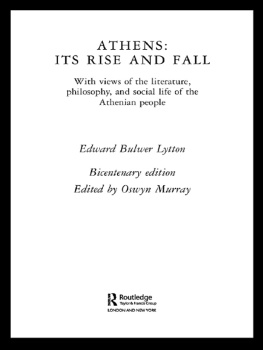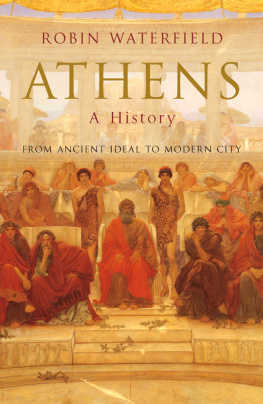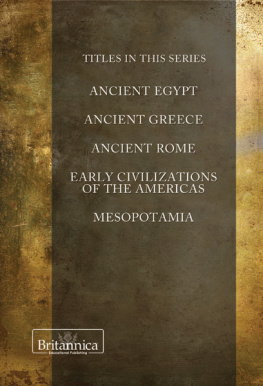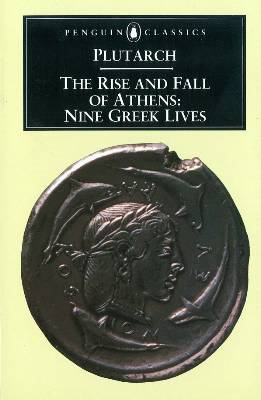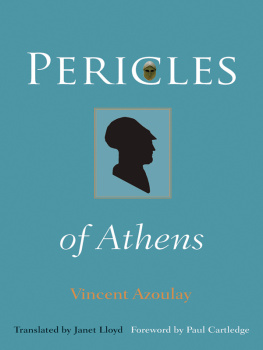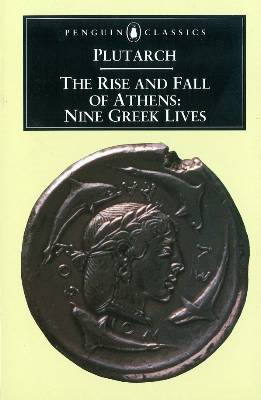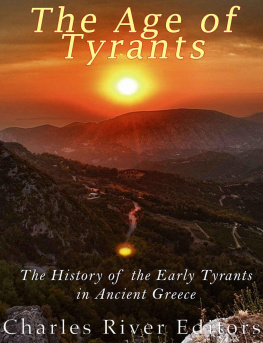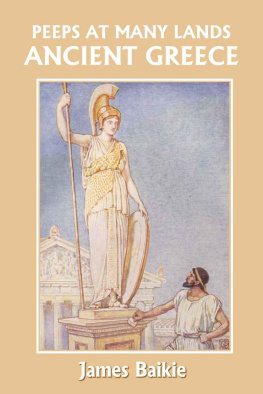Ancient Greek Technology: The History and Legacy of the Technological Advances Made in Greece during Antiquity
By Charles River Editors

A model of an ancient watermill
About Charles River Editors

Charles River Editors provides superior editing and original writing services across the digital publishing industry, with the expertise to create digital content for publishers across a vast range of subject matter. In addition to providing original digital content for third party publishers, we also republish civilizations greatest literary works, bringing them to new generations of readers via ebooks.
Sign up here to receive updates about free books as we publish them , and visit Our Kindle Author Page to browse todays free promotions and our most recently published Kindle titles.
Introduction
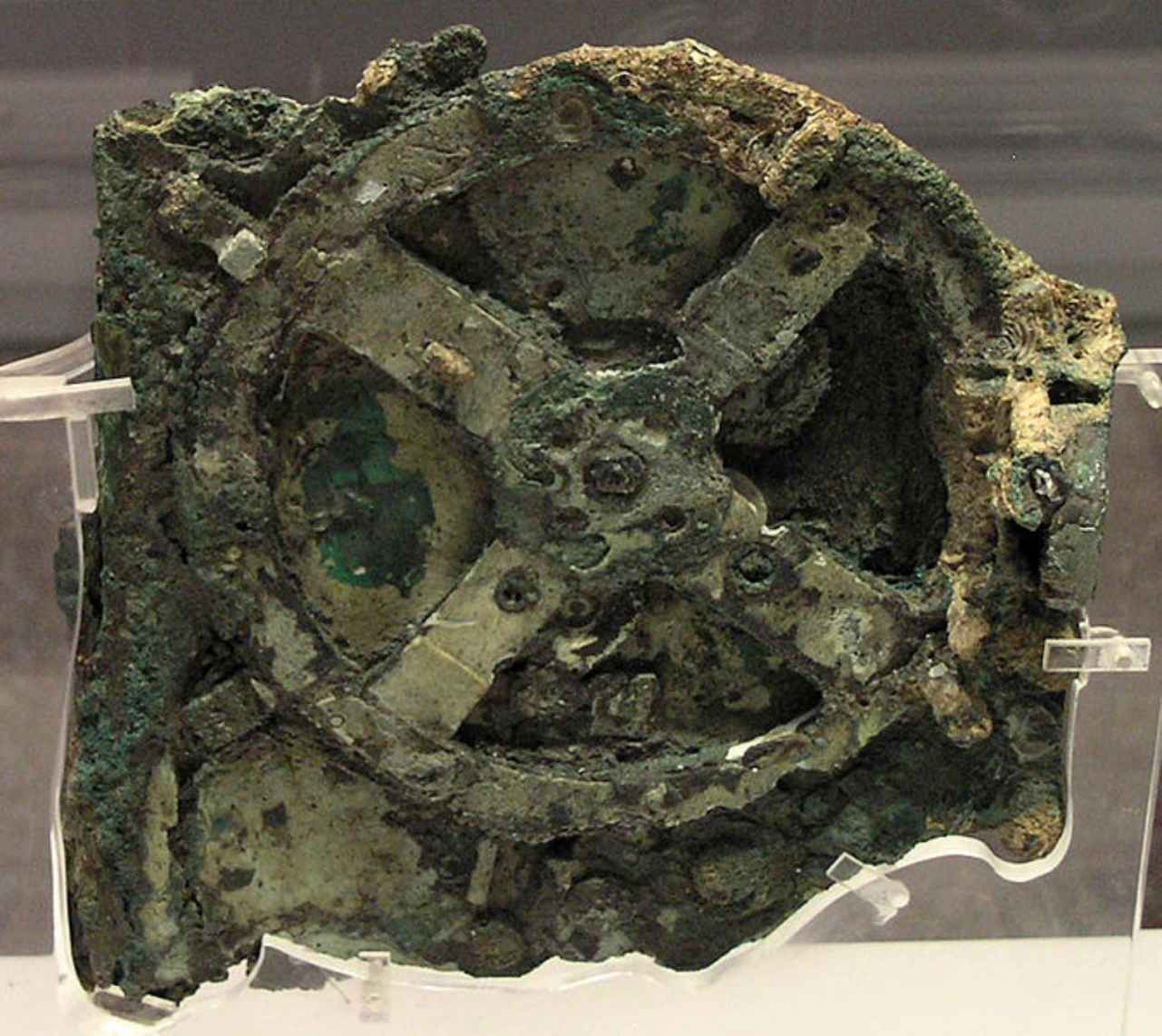
Ancient Greek Technology
A picture of the salvaged Antikythera Mechanism
What I would prefer is that you should fix your eyes every day on the greatness of Athens as she really is, and should fall in love with her. When you realize her greatness, then reflect that what made her great was men with a spirit of adventure, men who knew their duty, men who were ashamed to fall below a certain standard. If they ever failed in an enterprise, they made up their minds that at any rate the city should not find their courage lacking to her, and they gave to her the best contribution that they could. The Funeral Oration of Pericles , quoted by Thucydides
Dominated to this day by the sprawling white marble complex of the Acropolis, Athens is a city which is immensely and rightly proud of its past. For a period of roughly three centuries, the polis of Athens stood, if not in a position of unchallenged supremacy among the cities of Hellas, then at the very least among its three most important polities. Its fledgling Empire, though small by the standards later set by Alexander or the Romans, or even by those of its ancient enemy Persia, nonetheless encompassed cities as far afield as Asia Minor and Southern Italy, a remarkable fact considering such expansion was achieved by the inhabitants of a single city and its immediate surroundings, rather than by an entire nation.
For much of its history, the Athenian navy was the single mightiest force in the Mediterranean, having defeated the overwhelming might of Persia in pitched battle upon the open sea numerous times. The Athenian army itself, though subordinate to its naval power a sop to the fact that it was trade and empire-building that had made Athens rich was nothing to be sneered at, as it succeeded in meting out a humiliating defeat to Dariuss Persians at Marathon.
Yet despite a martial tradition that, if taken as a whole, was second to none save the Spartans, Athens is chiefly remembered for two reasons: its political system, which would in time form the nucleus of all Western democratic systems of government, and the remarkable number of outstanding individuals which, during the Golden Age of Athens, lived and flourished in the enlightened city-state. The Ancient Athenians formed the backbone of the Wests entire culture, from the arts to philosophy and everything inbetween.
In virtually all fields of human endeavor Athens was so much at the forefront of dynamism and innovation that the products of its most brilliant minds remain not only influential but entirely relevant to this day. In the field of medicine, the great physician Hippocrates not only advanced the practical knowledge of human anatomy and care-giving but changed the entire face of the medical profession. The great philosophers of Athens, men like Aristotle, Socrates, and Plato, interrogated themselves with startling complexity about the nature of good and evil, questioned the existence of divinity, advocated intelligent design, and went so far as to argue that all life was composed of infinitesimal particles. Great architects and sculptors such as Phidias produced works of art of such breathtaking realism and startling dynamism that they later formed the driving force behind the resurgence of sculpture during the Renaissance and served as masters to artists such as Michelangelo, Bernini, and Donatello. The plays of dramatists such as Aristophanes not only displayed an acerbic wit and a genius for political satire so pronounced that their works continue to be performed and topical to this day, but served as the inspiration for virtually all playwrights from Shakespeare to the present day. And this does not take into account the host of equally brilliant mathematicians, natural philosophers, historians, astronomers and politicians that the citys great schools nurtured and produced.
The flowering of Greek civilization was further made possible by an increase of trade between the cities and with other civilizations. Trade became a major occupation on account of the scarcity of agricultural land in the largely mountainous regions of the Balkan peninsula. The polis of Athens, in particular, assumed economic dominance in the Aegean in from the sixth-century BC. The consequent increase in wealth, resources and population made a cultural renaissance possible. Commerce, in turn, led to the rise of an affluent aristocratic class which had the leisure to devote itself to learning, philosophy, and art. It also led to an industrial class of freemen who were artists and craftsmen.
Religion also played a role in the development of Greek culture and technology. The ancient Greeks worshipped a multiplicity of gods, the chief of which dwelt on Mount Olympus in the first mountainous region of central Greece. The city-states would regularly send athletes to compete in the Olympic Games in their honor. Each city-state, however, had their own particular god: Athena was honored at Athens; Apollo at Delphi; Poseidon at Corinth; Zeus at Olympia, and so forth. Sculptures, temples and other buildings were built in honor of the gods who were believed to control the forces of nature. The truly great benefit that the gods gave the Greeks was something they did not have, and that was a sense of meaning and purpose to human action and to the natural world of which men and women were a part. For the ancient Greeks, the gods were capricious beings subject to the same passions, emotions, and vicissitudes as humans were, and no more enlightened as to the nature of existence and the path to a good and happy life. The new class of wealthy men who had the leisure to think stepped in where religion refused to go. Thales of Miletus (c.524 546 BCE), named by the classicist John Burnet the first scientist, observed the natural world and sought rational explanations for it. From him a tradition emerged which explored the world and the actions of humans through natural science, reason, mathematics, metaphysics, and ontology. After Thales a stream of philosophers, mathematicians and engineers emerged including names that are well known today, including Plato, Aristotle, Socrates, Pythagoras, Archimedes, Heraclitus, Epicurus, Diogenes, and Plutarch.
When considering the ancient Greek philosophers and their contribution to civilization it must be remembered that for them there was no separation of disciplines as we have them today. Philosophy was considered an attempt to understand the entire cosmos and not just a part of it. And so it was that every aspect of life and every observable thing might be considered under the umbrella of philosophy, including technology and art. Indeed, it was the ancient Greek philosophers who devised the very concept of technology. Techne, meaning art or craft knowledge, was conceived of as an attempt to imitate the natural order. Plato, in particular, argued that the cosmos was created by the divine craftsmen or Demiurge according to the eternal, immaterial, pre-existent forms, rather as an artist and or engineer creates a work according to a blueprint. He argued that a craftsman imitates the Demiurge and in so doing accomplishes something divine. To the ancient Greeks, the cosmos was ordered and harmonious. Consequently, reason and intellect were considered the architects of all art and craftsmanship. The absolute perfection of form was sought in everything and the Greek passion for simplicity, elegance, harmony, and beauty is to be found everywhere, particularly in architecture.

